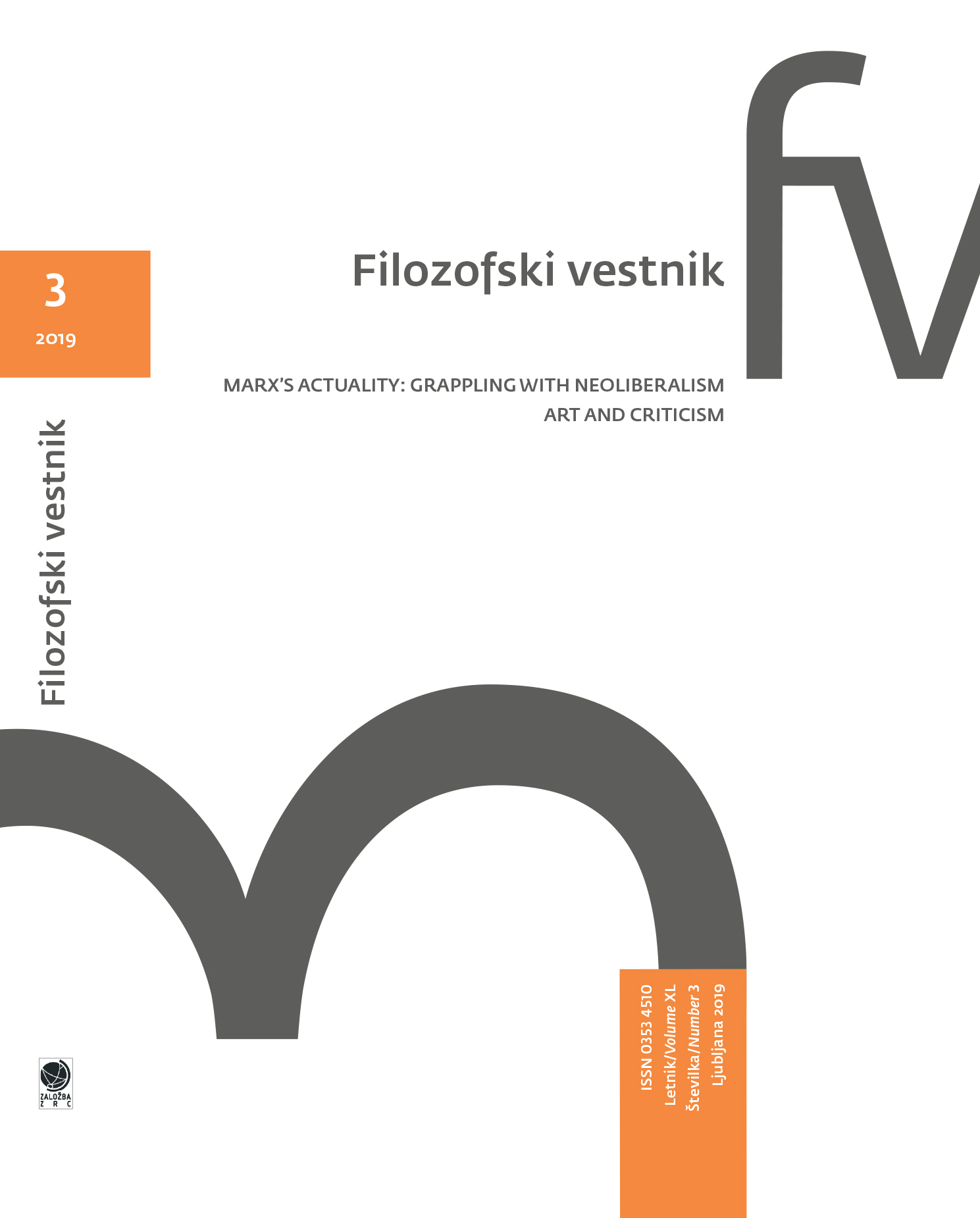Politika resnice in njene preobrazbe v neoliberalizmu: subjekt, za katerega se predpostavlja, da vé, v času algoritmov
Ključne besede:
algoritmične tehnologije, oblast, proizvodnja resnice, govorica, proizvodnja subjektivnostiPovzetek
Razvoj tehnologij za segmentacijo javnosti in izbrana distribucija informacij sta stari veščini prepričevanja omogočili nove možnosti. Ne samo da te tehnologije dosegajo še nezamišljivo raven individualizacije informacij v zgodovini množičnih medijev, ampak lahko tudi dajo najbolj primeren skupek informacij vsakemu posamezniku ali skupini posameznikov. Za te tehnologije lahko rečemo, da tvorijo novo vrsto oblasti, kjer produkcija resnice v algoritmičnih časih vključuje vodenja subjektov in skupin na doslej nedosegljiv neposreden način. Da bi poskusil izolirati in razumeti učinkovitost teh algoritmičnih orodij, raziskujem misel Michela Foucaulta o modalnostih oblasti. V sklepu teh razmislekov poudarim ponovno zanimanje za mišljenje dinamik oblasti, ki temelji na pojmovanju govorice kot elementa, ki predhaja subjekte. Kritični pristop družbene odtujenosti je na ta način prestavljen na področje, ki ni retorika ali prepričevanje, marveč je bliže analizi ontoloških učinkov diskurza.
Prenosi
Prenosi
Objavljeno
Kako citirati
Številka
Rubrike
Licenca
Avtorji jamčijo, da je delo njihova avtorska stvaritev, da v njem niso kršene avtorske pravice tretjih oseb ali kake druge pravice. V primeru zahtevkov tretjih oseb se avtorji zavezujejo, da bodo varovali interese založnika ter da bodo povrnili morebitno škodo.
Podrobneje v rubriki: Prispevki





